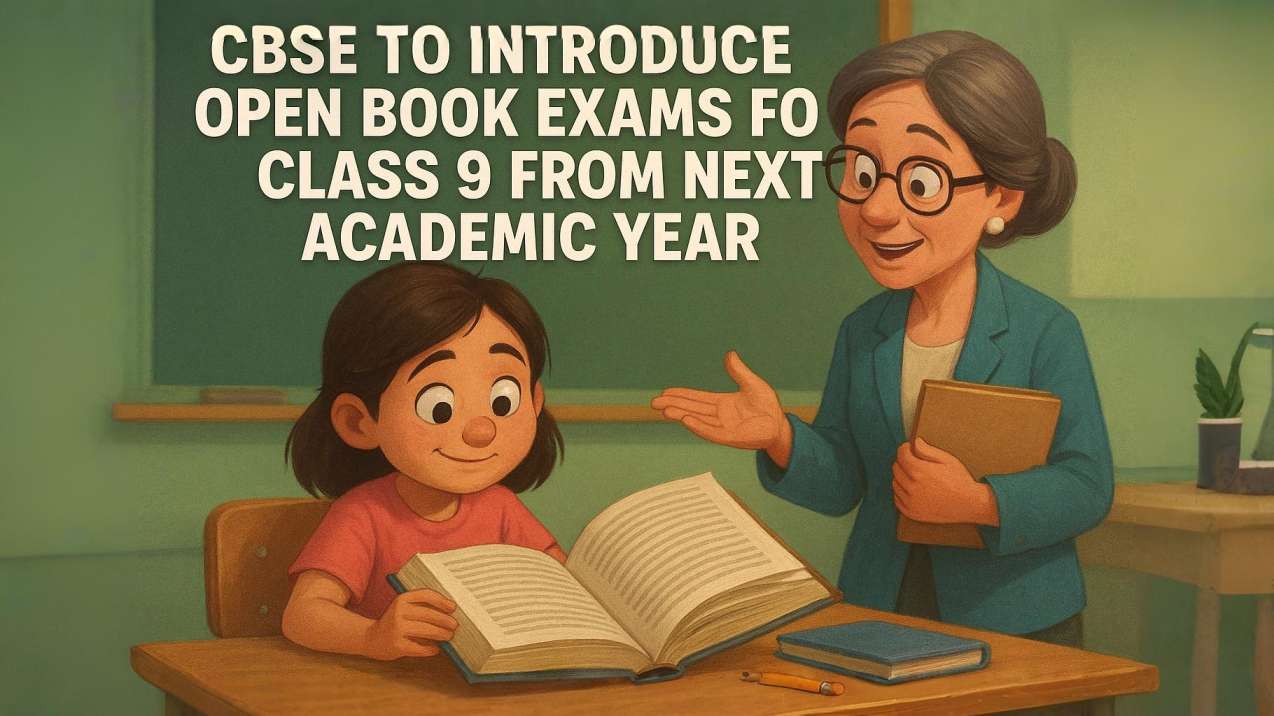Loading advertisement...
11-08-2025

The Central Board of Secondary Education (CBSE) has announced a groundbreaking shift in its assessment strategy — Open Book Exams will be introduced for Class 9 students starting from the next academic year. This move aims to transform the way students approach learning, shifting from memorization to conceptual understanding, application, and analytical thinking.
In an Open Book Exam, students are allowed to bring their textbooks, notes, or other approved reference materials into the exam hall. But this doesn’t mean students can simply “look up answers.” Instead, the exam is designed to challenge comprehension and problem-solving skills.
Questions in an open book format often require:
This reform is in line with the National Education Policy (NEP) 2020, which advocates for skill-based learning and reducing exam stress. The main objectives include:
Open book assessments are not new globally. Many education boards and universities in countries like the USA, UK, Australia, and Singapore have been successfully using them to assess deeper learning skills.
In the University of Cambridge, open book tests are used in certain humanities subjects.
Australian schools use them in law and business studies to test reasoning and application.
CBSE’s step brings India closer to these international education standards.
The open book format is expected to:
While promising, the open book system also comes with challenges:
Students may misinterpret the format and think less preparation is needed.
Teachers will need to create complex, analytical questions that truly test understanding.
Schools must ensure access to necessary resources and train both teachers and students for this change.
CBSE’s introduction of open book exams for Class 9 is a progressive step towards making education more practical, skill-oriented, and stress-free. If the pilot run in Class 9 proves successful, the system may expand to Class 10 and higher grades in the coming years — reshaping India’s examination culture for the better.
✅ Stay connected with Skool Guru for more educational tips, exam strategies, and academic guidance.
📞 Need help? Contact our mentors today!
Visit: www.skoolguru.in